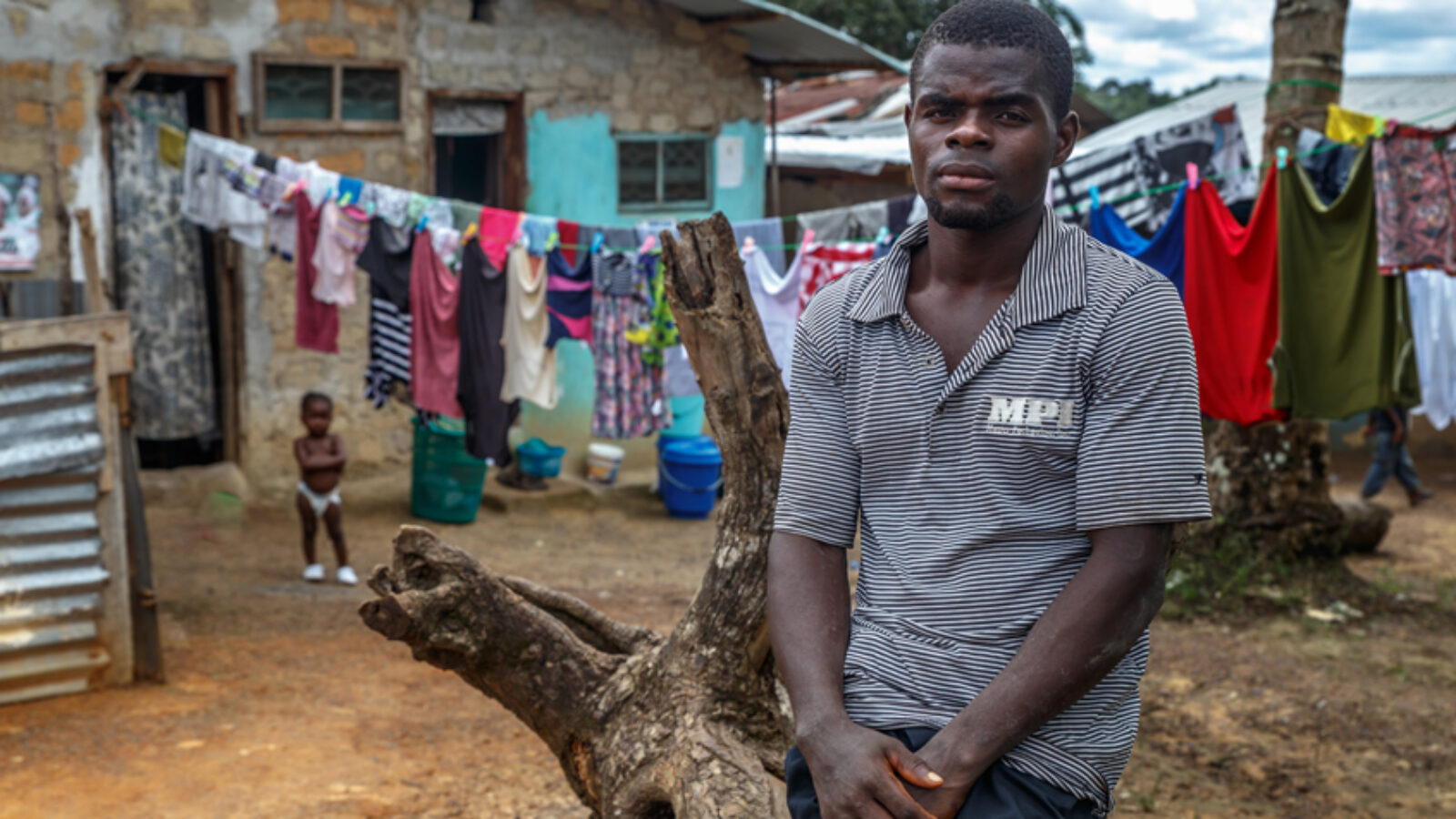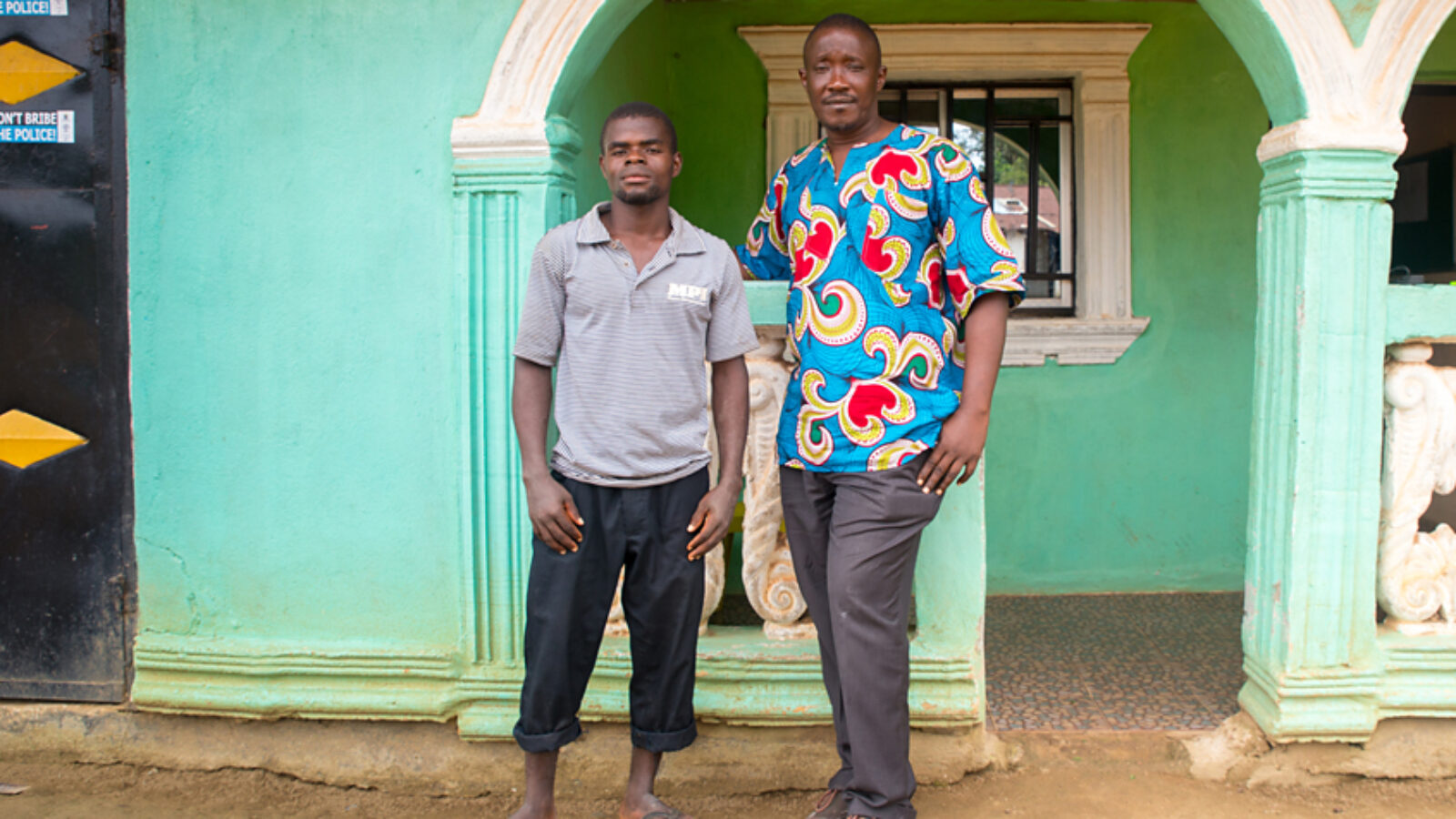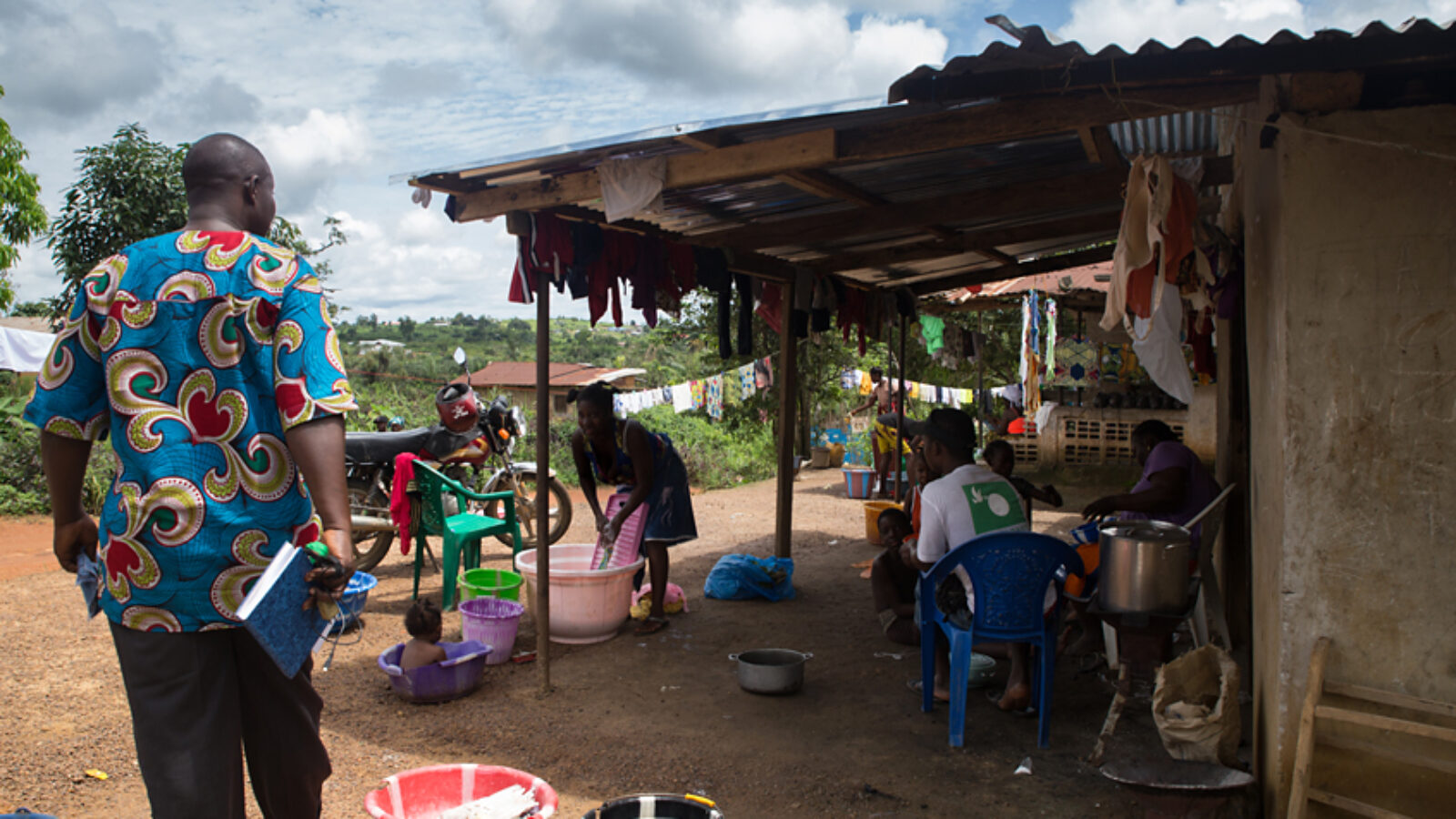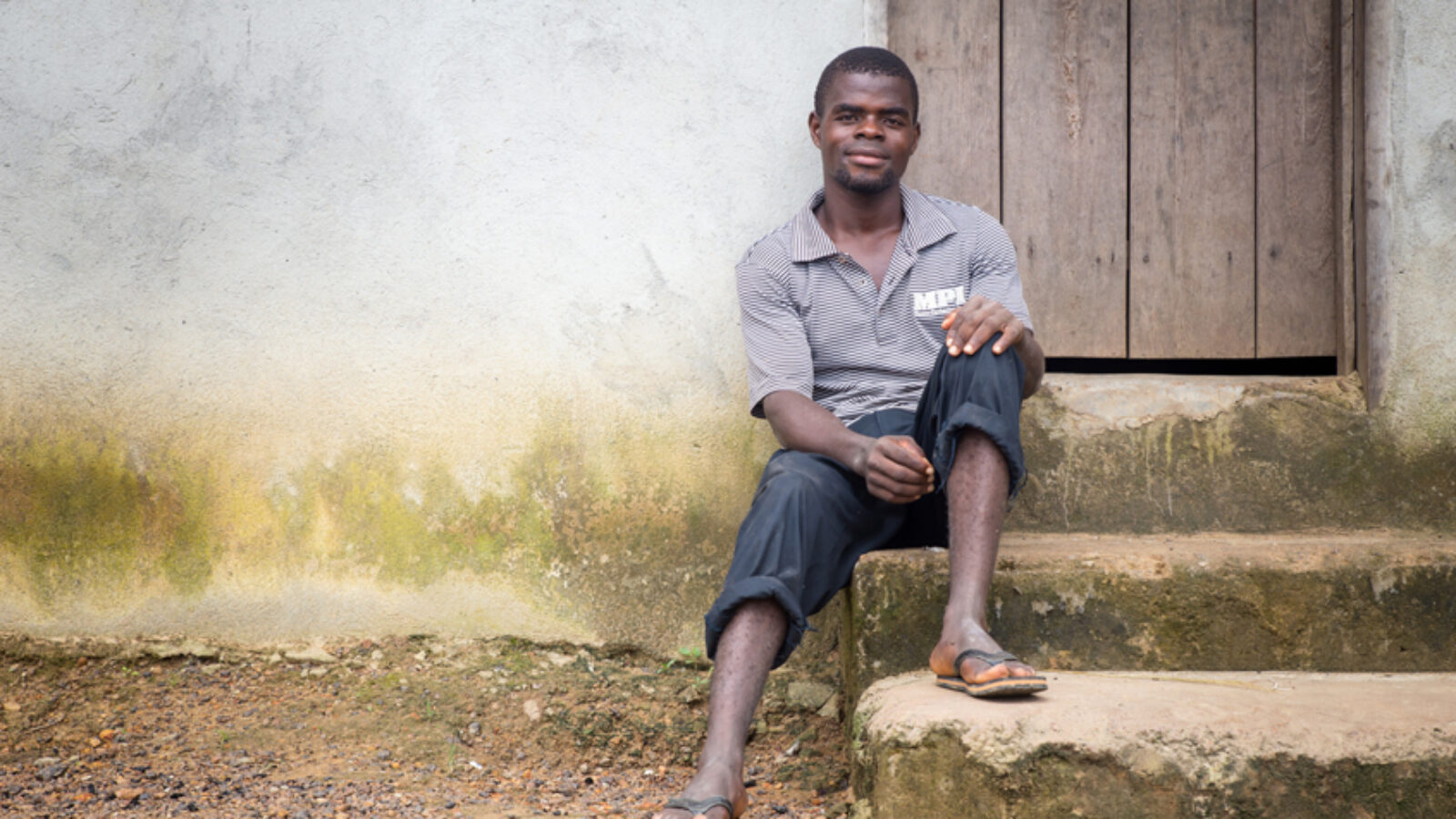The Brickmaker’s Tale: How a $30 Debt Almost Cost a Man his Freedom
Victor Tuazama was walking home from his office in Kakata, Liberia, when he stumbled upon a confrontation between a police officer and a citizen.
Tuazama stopped to observe.
It soon became clear that brickmaker Boimah Dorley was about to be arrested because he owed a man the equivalent of about US$30. The lender had shown up on Dorley’s door with the policeman, and though Liberian law says debts are civil matters, not criminal ones, Dorley was in real danger of being arrested and jailed.
Luckily for him, Tuazama works as a community justice advisor for the Carter Center-supported Catholic Justice and Peace Commission, mediating disputes and teaching people about their rights under the law.
“I intervened when I could tell the policeman was about to take him to jail,” said Tuazama. “I said to the police officer, ‘No. From what I’ve heard, this has nothing to do with you.’ I asked him, ‘Will you let these guys work this out? Because it does not involve you at all.’”
The policeman was not happy. Neither was the lender, who accused Tuazama of interfering.
“I told the man, ‘I am interfering for your own good. My brother, if you want your case settled, we can go and sit and figure out how to get your money.’”
Roughly 10 minutes later, everyone – including the police officer – was seated around a wooden conference table in his office. And about 45 minutes after that, a deal had been struck: Dorley’s brother, who was also at the table, paid a little more than half the debt with money from his pocket, and Dorley signed a promissory note agreeing to pay the rest in about a month’s time.
He kept his word, and all is now well.
“I feel great because he rescued me right there,” said Dorley, who is the father of 3-year-old and 9-year-old boys. “If I am in jail, time will be passing by, and I will not be working.”
He also called the matter a learning experience: “I began to understand I have to know my rights.”
Tuazama, who has worked as a community justice advisor since 2009, said such incidents are all too common.
People like the lender don’t know where to take their issues, and members of the police force sometimes ignore the law. If Tuazama had not happened along, he said, Dorley would likely have gone to jail and had to pay a fine to get out, decreasing the likelihood that the lender would ever have gotten his money.
“It happens all the time.”
Tuazama is one of more than 50 community justice advisors working in eight of Liberia’s 15 counties. Since the inception of the program, they’ve helped resolve more than 12,000 cases involving everything from boundary disputes to child support, from salary complaints to police brutality.
“There are 12,000 Boimah Dorleys out there whose lives are a little better because of the work of Victor and the other community justice advisors,” said Pewee Flomoku, chief of party for the Carter Center’s Access to Justice project. “Their efforts are essential to the overall goal of helping to ensure justice and equal treatment for all Liberians.”
Global Impact Starts with You
Your support sustains the Carter Center's mission of waging peace, fighting disease, and building hope around the world.





